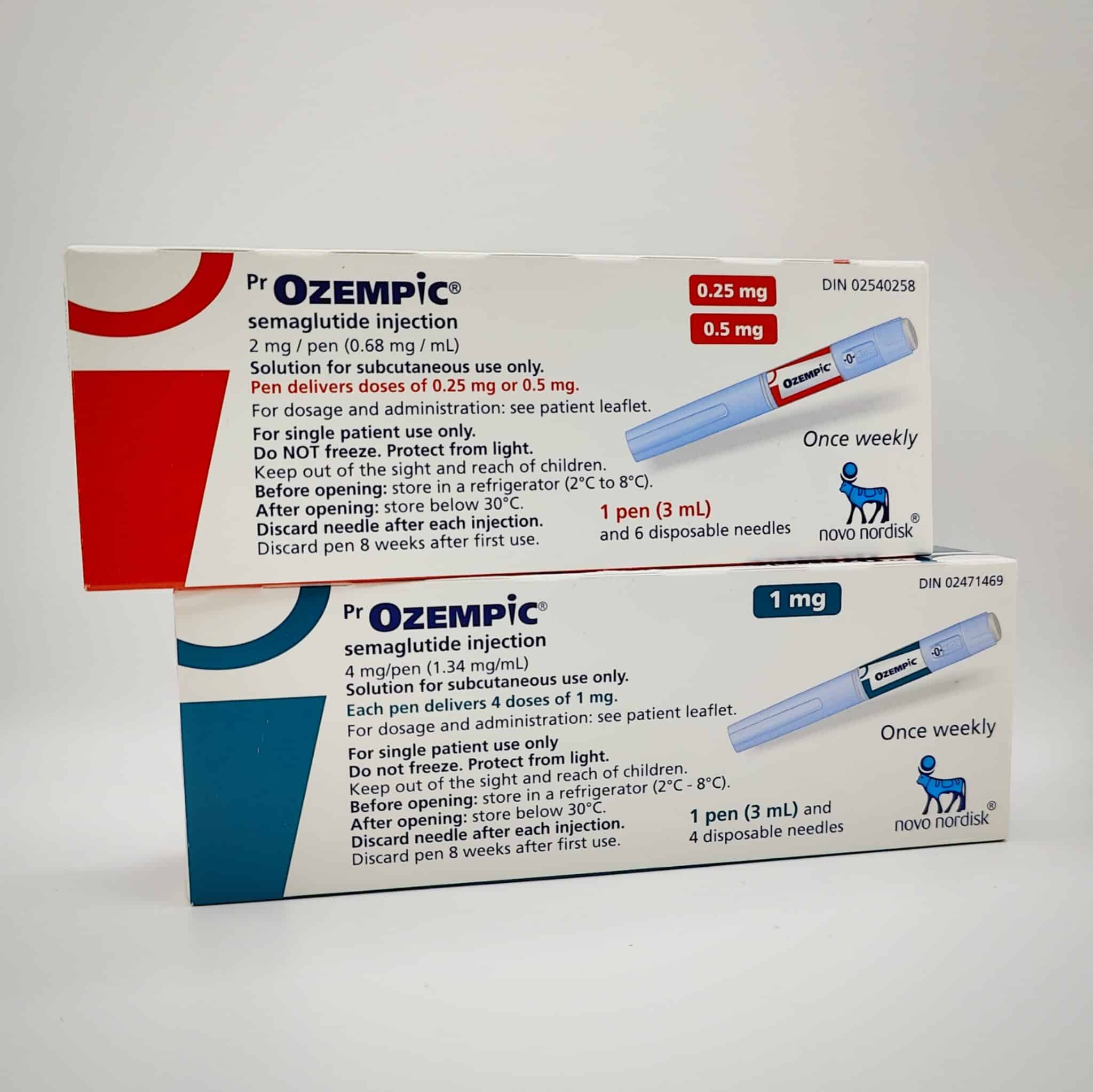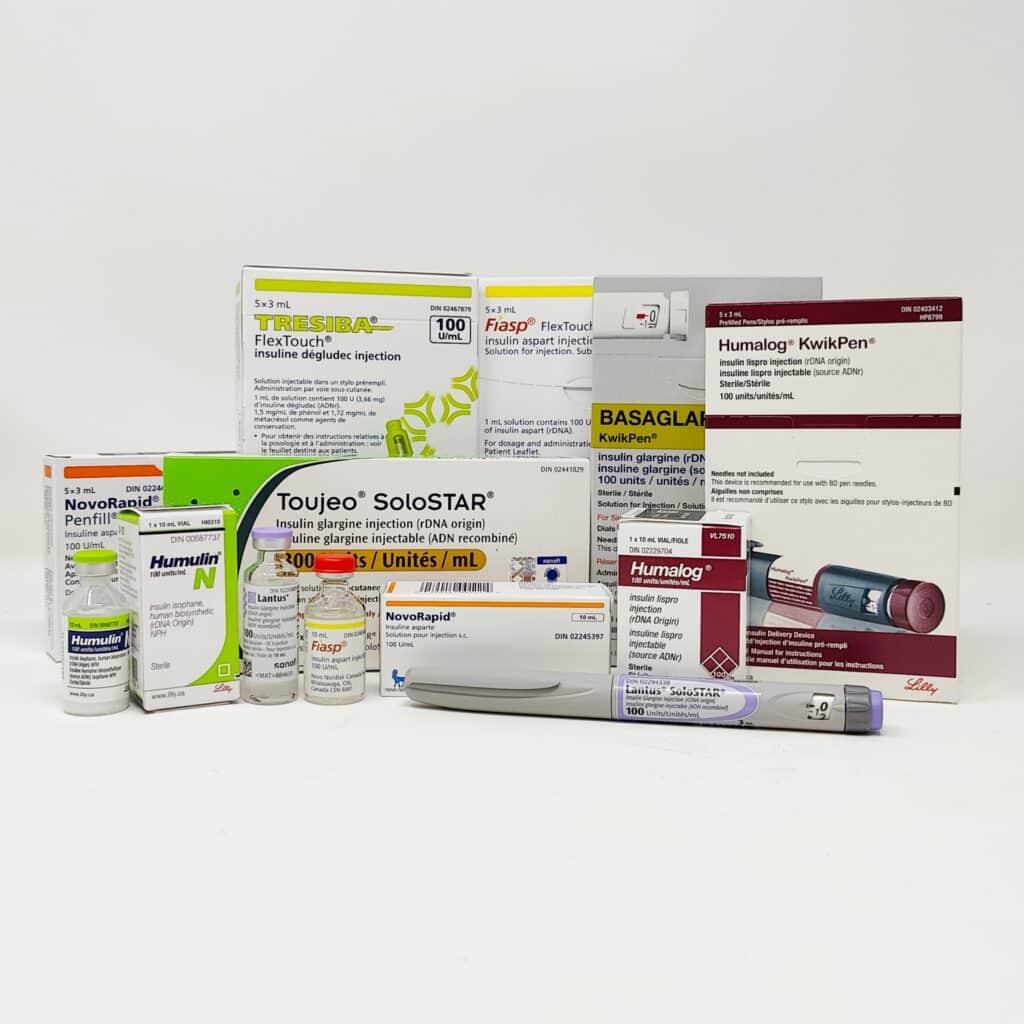Does Ozempic Cause Hypoglycemia? What You Need to Know
Does Ozempic Cause Hypoglycemia? What You Need to Know
- Todd P
Ozempic (semaglutide) is a popular medication for managing type 2 diabetes and aiding weight loss. Its effectiveness in lowering blood sugar and improving overall health has made it a preferred choice for many patients. However, one common concern is whether Ozempic can cause hypoglycemia (low blood sugar), especially when combined with other diabetes medications like Metformin.
This blog will explore the connection between Ozempic and hypoglycemia, when it might occur, and how to minimize the risk.
What is Hypoglycemia?
Hypoglycemia occurs when blood sugar levels drop too low, typically below 70 mg/dL. Symptoms can range from mild to severe and include:
- Shakiness, sweating, or dizziness.
- Hunger or irritability.
- Confusion or difficulty concentrating.
- Severe cases can lead to fainting, seizures, or even a coma.
Managing hypoglycemia is a critical part of diabetes care, especially when using medications that lower blood sugar levels.
Can Ozempic Cause Hypoglycemia on Its Own?
Ozempic is a GLP-1 receptor agonist, which works by:
1. Increasing insulin production in response to meals.
2. Reducing the release of glucose from the liver.
3. Slowing gastric emptying to control post-meal blood sugar spikes.
Risk of Hypoglycemia with Ozempic Alone
On its own, Ozempic has a low risk of causing hypoglycemia. This is because it only stimulates insulin production when blood sugar levels are elevated, preventing the excessive lowering of blood sugar. Unlike medications like insulin or sulfonylureas, which can lower blood sugar regardless of meals, Ozempic acts in a more controlled and glucose-dependent manner.
Does Combining Ozempic with Other Medications Increase Hypoglycemia Risk?
While Ozempic alone has a low risk of hypoglycemia, combining it with certain other diabetes medications can increase this risk. Here’s how it interacts with some commonly prescribed drugs:
1. Metformin
- Low Risk of Hypoglycemia: Metformin, like Ozempic, has a low likelihood of causing hypoglycemia on its own. When used together, the risk remains minimal for most patients.
- Why They’re Combined: This combination works well to control blood sugar, as Metformin reduces glucose production in the liver, while Ozempic improves insulin response and slows digestion.
2. Sulfonylureas (e.g., glipizide, glyburide)
- Higher Risk of Hypoglycemia: Sulfonylureas stimulate the pancreas to release insulin, which can lower blood sugar even when glucose levels are already low. When combined with Ozempic, this risk increases due to the additive effects on insulin production.
- Precaution: Patients using both medications should monitor their blood sugar closely and work with their doctor to adjust doses as needed.
3. Insulin
- Significant Risk of Hypoglycemia: Adding Ozempic to an insulin regimen can increase the risk of hypoglycemia, as both medications lower blood sugar.
- Management Tips: Dose adjustments and frequent blood sugar monitoring are essential to minimize risk.
How to Reduce the Risk of Hypoglycemia with Ozempic
1. Monitor Your Blood Sugar
- Check your blood sugar levels regularly, especially if you’re on multiple diabetes medications.
- Be aware of patterns and symptoms that might indicate low blood sugar.
2. Adjust Medication Dosages
- Work with your healthcare provider to tailor your medication doses. For instance, your doctor may lower the dose of insulin or sulfonylureas when starting Ozempic.
3. Eat Balanced Meals
- Incorporate carbohydrates, proteins, and healthy fats in your meals to maintain steady blood sugar levels. Avoid skipping meals, especially when taking diabetes medications.
4. Be Prepared
- Always carry a fast-acting carbohydrate (e.g., glucose tablets or juice) to treat low blood sugar quickly if it occurs.
5. Regular Check-Ins with Your Doctor
- Schedule follow-ups to review your medication regimen and ensure it’s working effectively without causing unwanted side effects.
Key Takeaways
1. Ozempic Alone: Low risk of hypoglycemia due to its glucose-dependent action.
2. With Metformin: Risk remains low, making it a common and effective combination.
3. With Sulfonylureas or Insulin: Risk increases significantly, requiring careful monitoring and dose adjustments.
For most patients, the benefits of combining Ozempic with other medications outweigh the risks when managed correctly. Always work closely with your healthcare provider to tailor a treatment plan that minimizes hypoglycemia while optimizing blood sugar control.
Affordable Access to Ozempic
Ozempic can be expensive for U.S. patients, but purchasing through Canadian prescription referral services like Over the Border Meds offers significant savings. These services connect you with licensed Canadian pharmacies, providing safe and cost-effective access to medications. Visit Over the Border Meds to learn more and start saving today.


